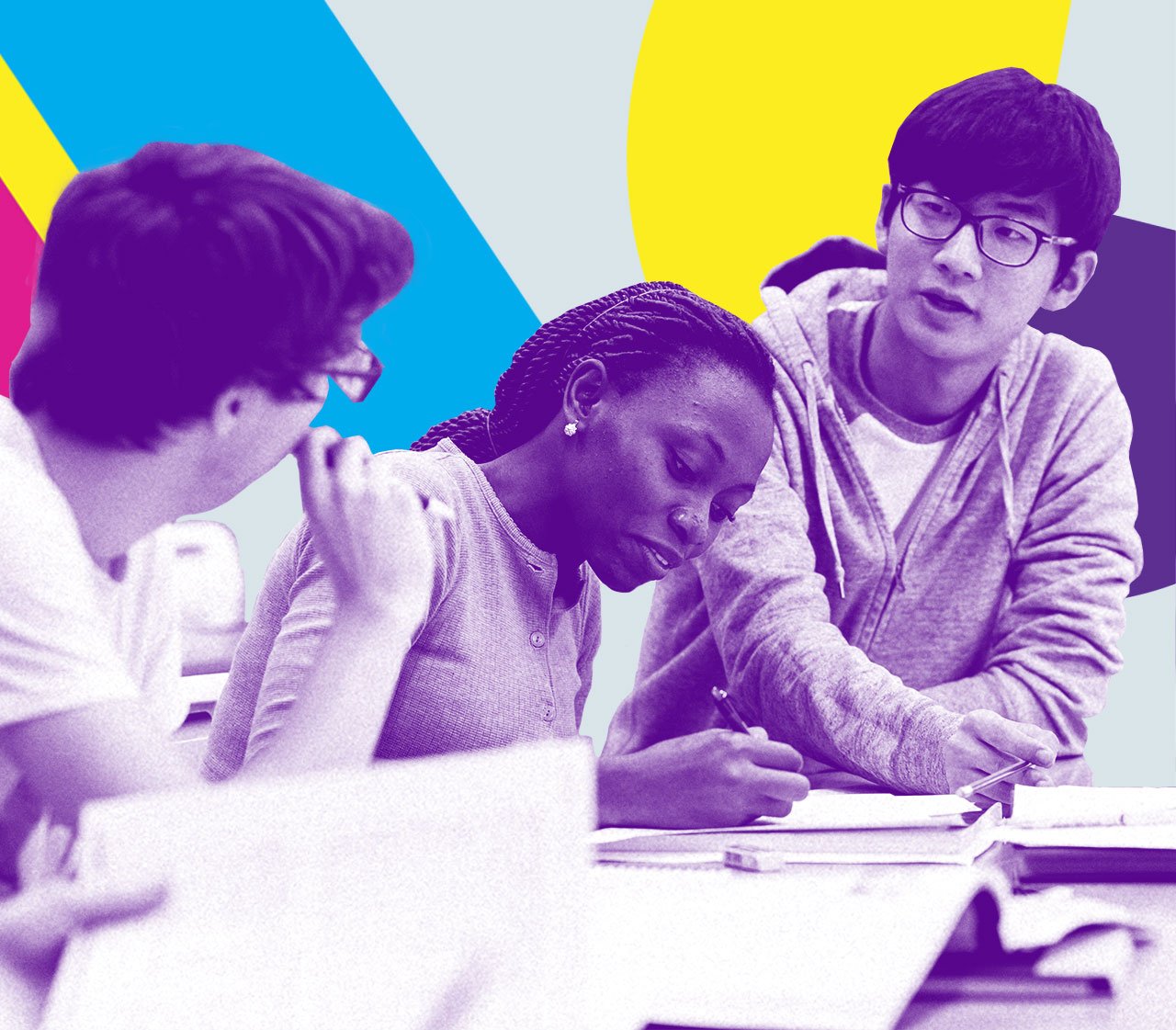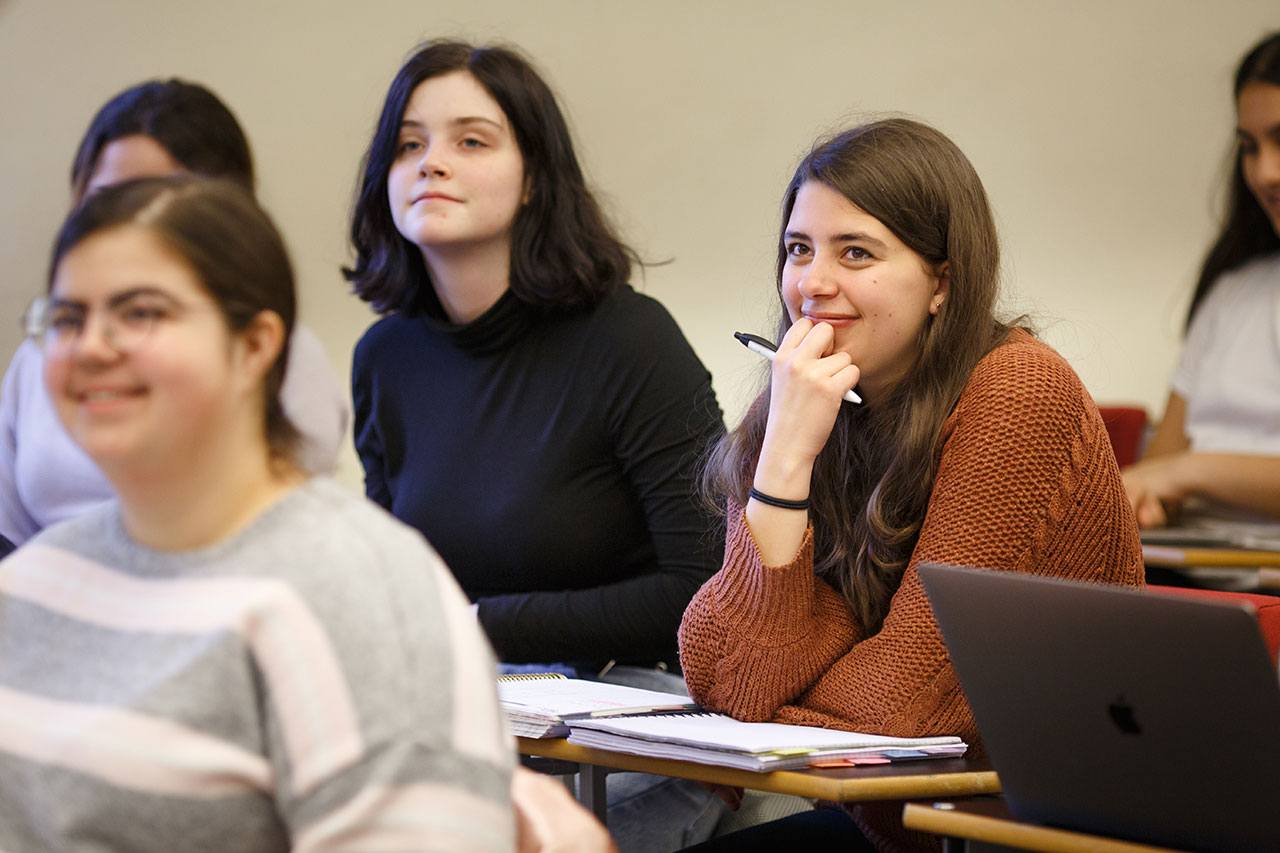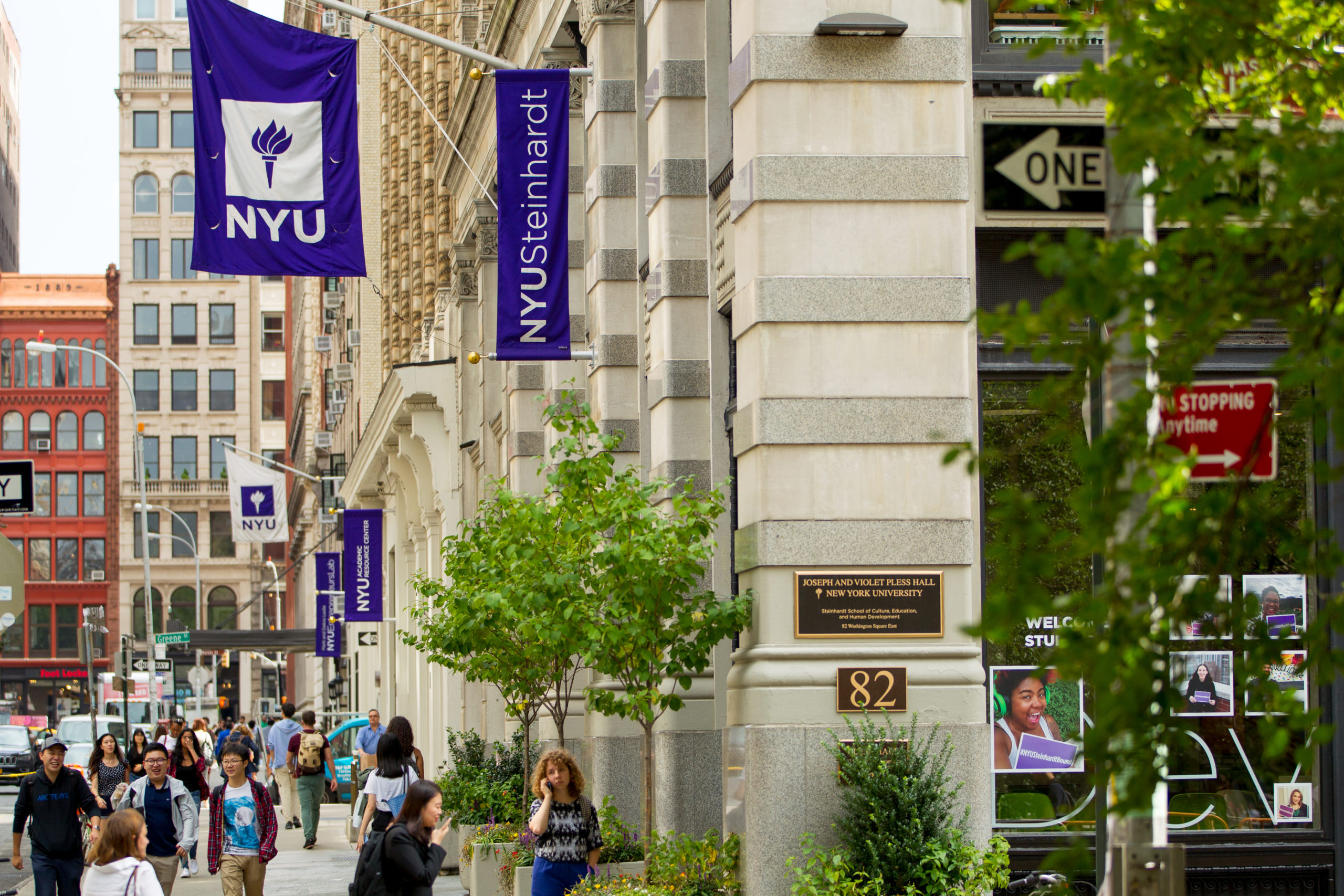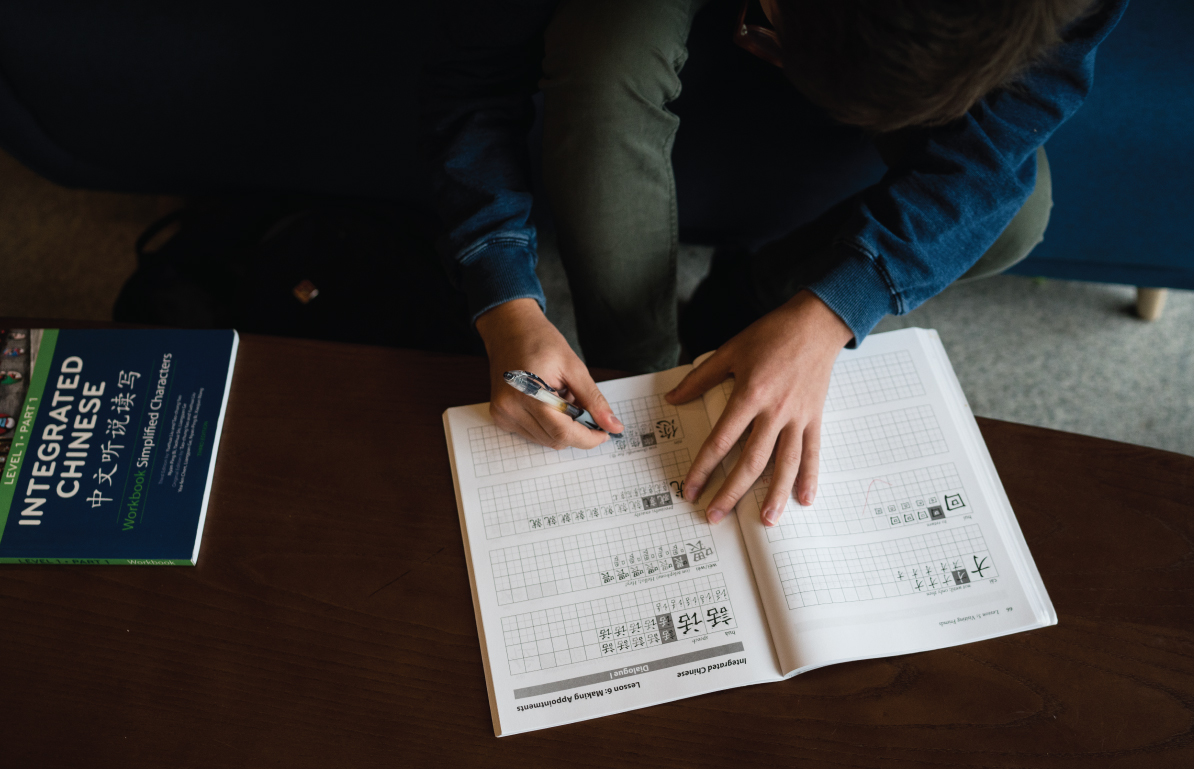
If you love language and culture, you know how meaningful it can be to share that interest with others. That connection is at the heart of the World Language Education program at the NYU Steinhardt School of Culture, Education, and Human Development. It combines a robust study of Chinese, French, Italian, Japanese, or Spanish with professional training to teach middle and high school students in the United States or abroad.
As a World Language Education major, you’ll immerse yourself in the language and culture of your choice. After building a solid foundation with liberal arts and pedagogy courses, you’ll gain invaluable experience teaching in New York City schools. Throughout your journey, you’ll receive support and access to the many resources available at Steinhardt and across the University. By the time you finish your degree, you will be eligible for New York State’s initial teaching certification.
Intrigued? Read on to learn more about what this special program offers to future educators and leaders.
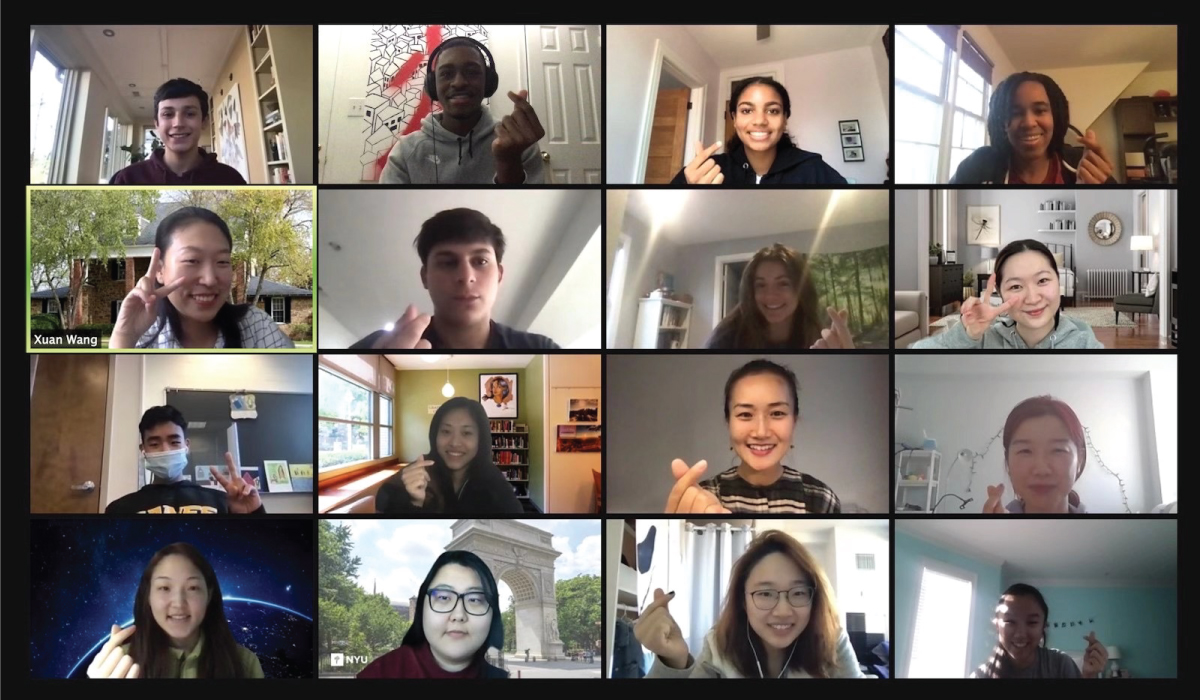
Engage Deeply with Language While Gaining Teaching Skills
The difference between majoring in World Language Education and studying a language is the teaching experience students gain during their third and fourth years. For example, World Language Education graduate Jonathan Mangar, who focused his studies on Spanish, Italian, and linguistics, received experience in two boroughs. “I taught in a low-income neighborhood in Brooklyn during one semester and an affluent Upper West Side private school during the other,” he explains. “I was able to appreciate the experiences of a varied group of young people across the city.”
For Xinrui (Isabel) Zhang, who earned her bachelor’s degree, the program was an opportunity to share her passion for her Chinese heritage. “I learned advanced, reliable, and professional teaching pedagogies and practices. Furthermore, I made many friends who share the same goals as me,” she says. “We all believe that we have a responsibility to bring authentic knowledge about language and culture to students. Additionally, we want to help them understand the diversity among the people who speak each language.”
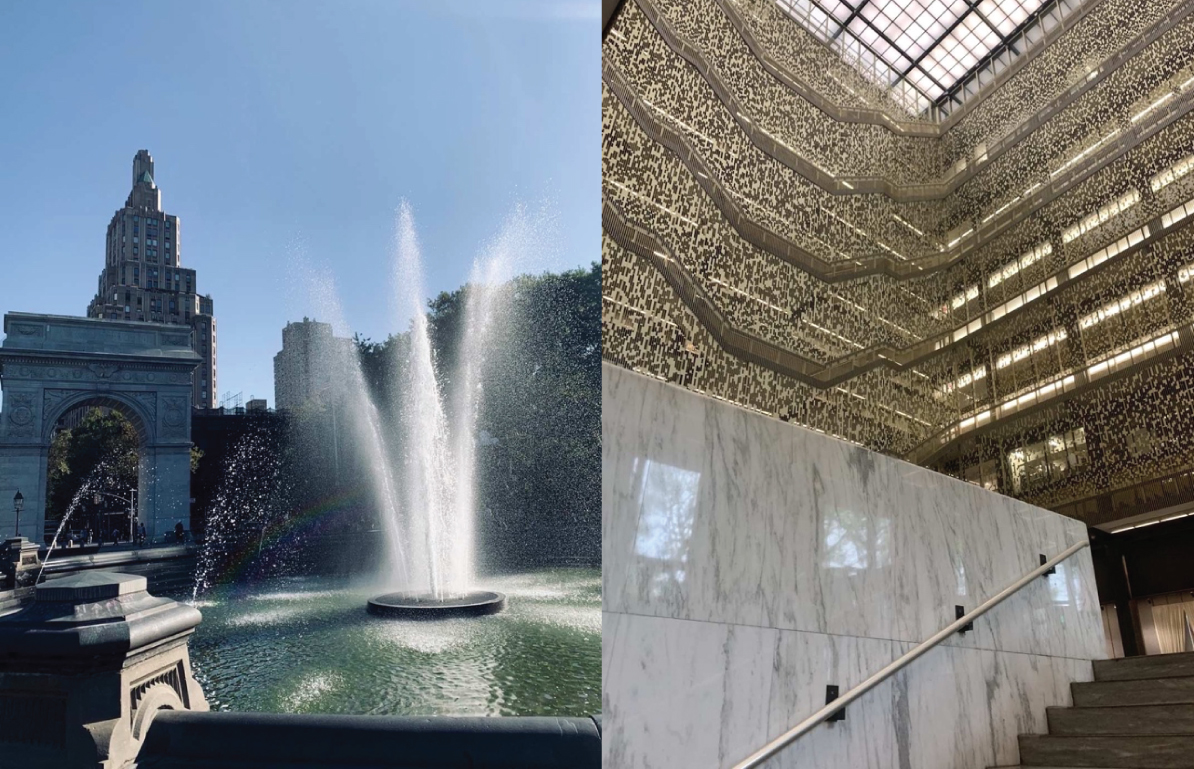
With the City as Your Campus, You’ll Find Language Everywhere
At NYU, the city enriches your studies in innumerable ways. For example, New York City is the home of diverse, well-established communities of native Chinese, French, Italian, Japanese, and Spanish users. “You have exposure to many different varieties of each language,” explains Robin Harvey, a clinical assistant professor of TESOL (Teaching English to Speakers of Other Languages), bilingual, and world language education. “The opportunities here can be mind-blowing.” And, according to Professor Harvey, NYU’s language teaching philosophy is expansive. “We think beyond just Spanish from Spain or French from France,” she says. “Our field is growing, and it is important that we have teachers coming from all different backgrounds.”

You Will Graduate with the Initial Certification to Teach
NYU Steinhardt recommends all world language education students for the initial New York State certification. This certification is required to teach in public schools, some private schools, and most charter schools across the state. “Even if you decide not to teach, certification is a helpful qualification for working as an administrator or in an educational or professional development organization,” explains Professor Harvey. “It shows you understand child development and how to help people learn.”
You Will Have Career Options Connected to the Field You Love
Teachers are in high demand, but you can also do something else entirely. Become an interpreter or translator. Or you can work for the government, a bilingual organization, or a publisher. What’s more, many domestic and international businesses benefit from world language education students’ deep understanding of other cultures and languages. And, of course, there’s always the travel industry.
Each year, NYU and the New York City Department of Education hold the Foreign Language Conference. There, you can explore your options and network with education professionals and potential employers. No matter your goals, you will benefit from NYU’s extensive alumni network. “We’re a tight-knit program,” Professor Harvey affirms. “Our professors are eager to see students become the best teachers and professionals. We work closely with them to make sure they succeed.”

